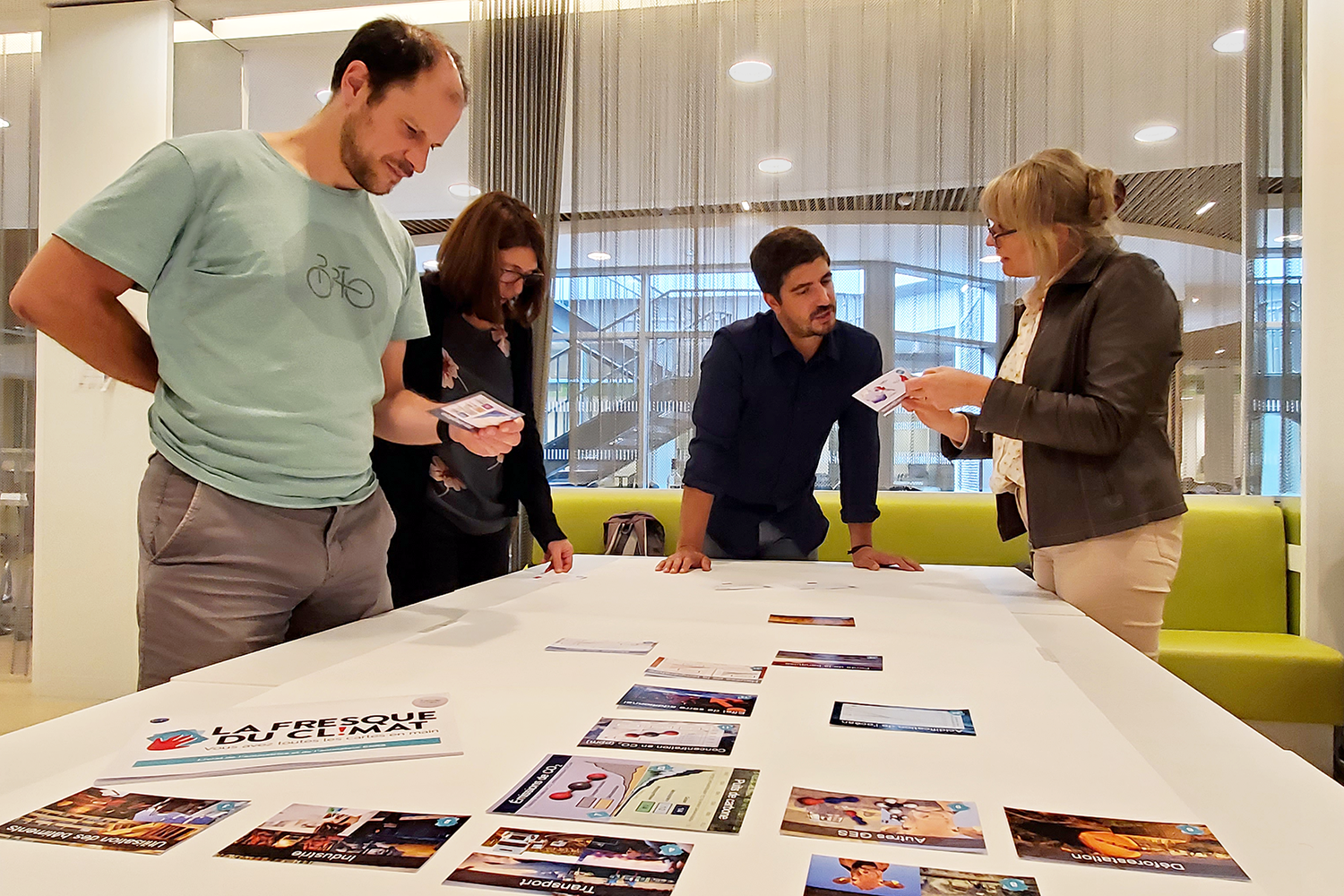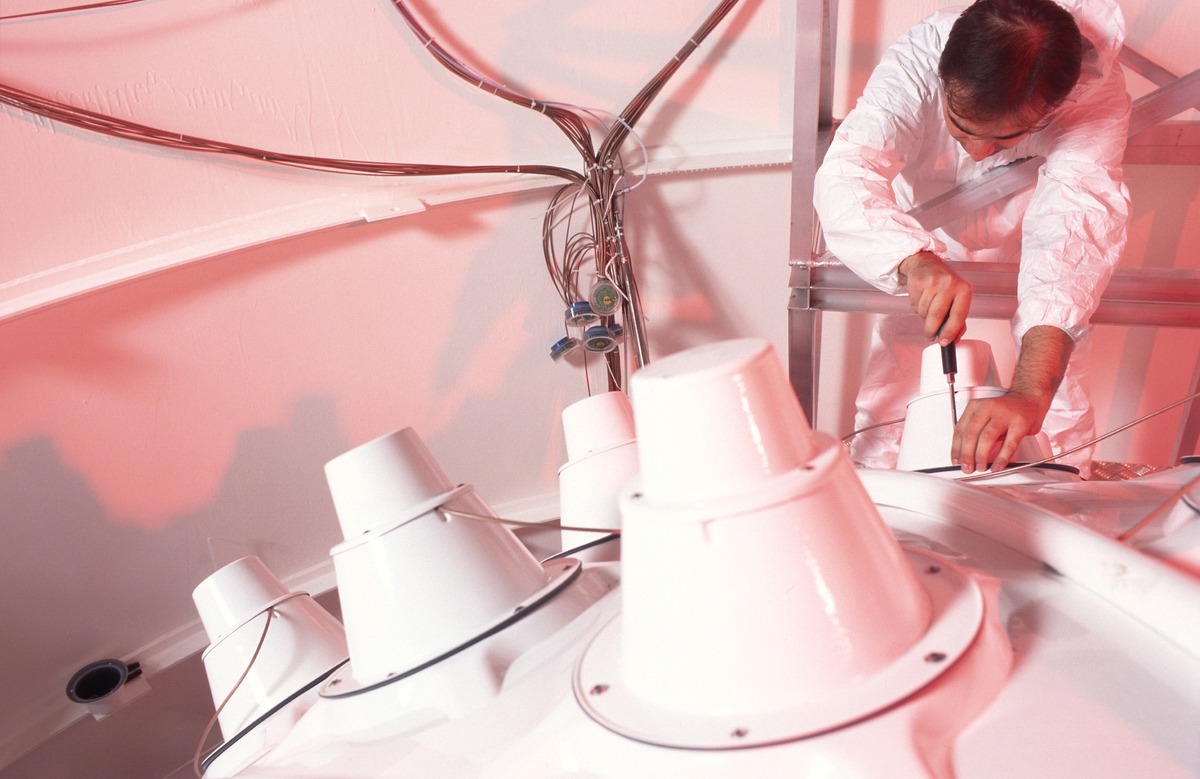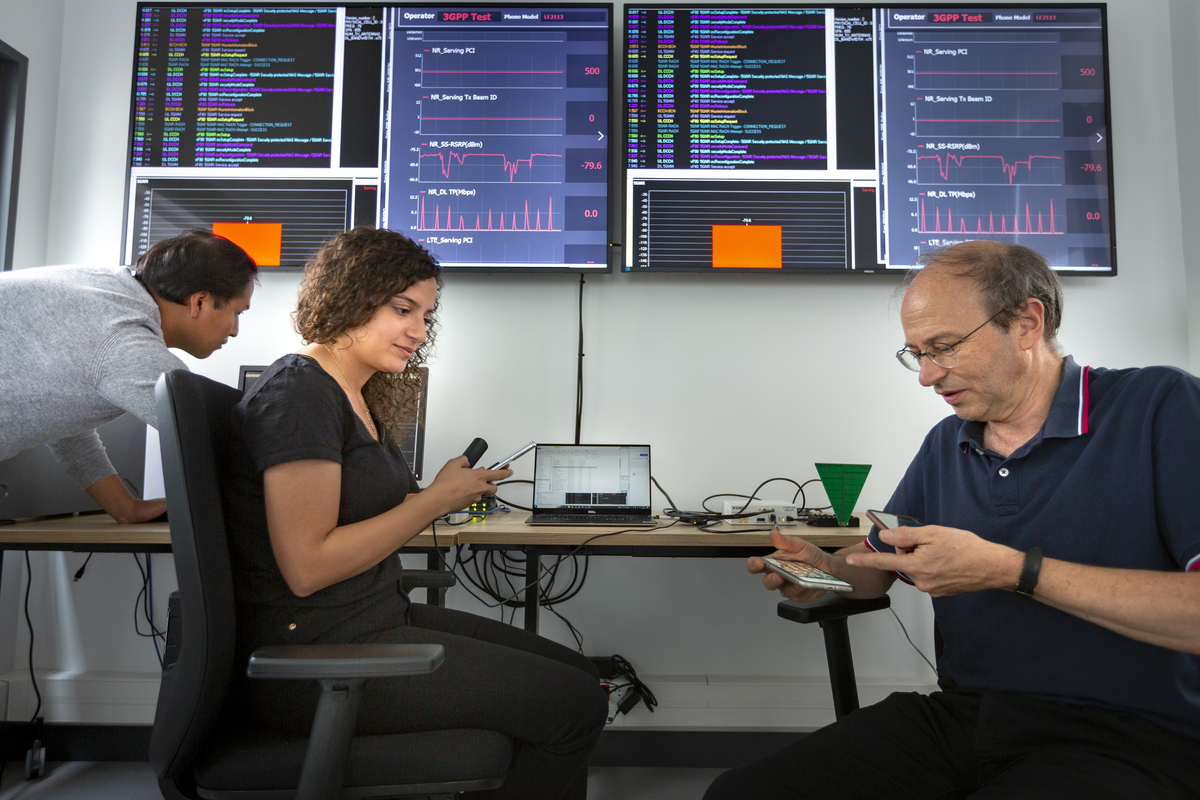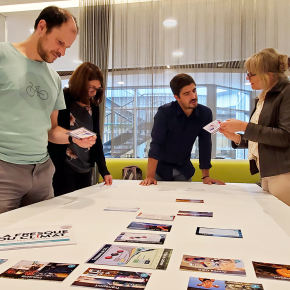
Researchers' increasing awareness of their own environmental impact
Following a recommendation by the CNRS Ethics Committee, an increasing number of scientific initiatives are taking the environmental impact of their research practices into greater account and aiming to minimise that impact.
Towards the end of 2022 the CNRS Ethics Committee (COMETS)1 published its position on integrating environmental issues into the approach to research (French link) and recommended the "dissemination of an impact culture within the scientific community". During the following year, the various stakeholders in the French research community clearly responded positively to this recommendation. An increasing number of research projects now integrate the environmental impact of future scientific work at the design stage along with solutions to minimise this, whatever the scale of the projects involved. Let's take a look at the main ways this is being achieved.
Raising awareness of the environmental impact of research travel
The scientific community's enhanced awareness means it is fully conscious of the impacts of research, particularly in terms of carbon emissions. Pierre Barré is a CNRS research professor at the École normale supérieure's Geology Laboratory2 and co-director of the FairCarbon (French link) priority research programme and equipment (PEPR)3 . He explains how the scientific community is now making efforts to avoid, reduce or compensate for carbon emissions: "You can't be carbon neutral if you're working on a scientific project unless you store carbon but you can try to contribute as little as possible to greenhouse gas (GHG) emissions".
To provide FairCarboN's stakeholders with quantitative information on its carbon impact, the management of the PEPR organised an awareness-raising day during which at least one member of each targeted project or winner of a call for projects funded by the PEPR took part in a 'Ma Terre en 180 minutes' workshop (French link). This 'My Earth in 180 Minutes' initiative was launched in November 2020 by scientists from Grenoble. It is the academic sphere's first collaborative workshop working on constructing scenarios for laboratories to reduce their carbon footprints. The CNRS and the Research Institute for Development (IRD) saw the clear value of this environmental transition workshop. So much so that they included it in the programme for their 'Décarbonons ! Une trajectoire bas carbone pour l’ESR'4 (French link) initiative which provided training for 60 additional facilitators by 2023. Having received awareness-raising training about the impact of their activities and particularly travelling by plane for work purposes, the scientists working on each project of this PEPR will now provide regular reports listing the measures implemented to minimise their emissions and thus limit the programme's environmental impact. For example such measures will include "reducing missions in the field by training teams from the Southern countries involved in the projects, grouping missions, using videoconferencing or training tutorials and fully exploiting existing data before organising new missions", as the co-director of FairCarbon explains.

Assessing the life cycle of scientific instruments
Of course it is crucial to raise awareness of the impact of air travel for work purposes (French link) but it is also essential to educate the scientific community about the impact of even more carbon-intensive activities. Purchasing (French link), for example, accounts for 74% of the CNRS's carbon emissions as it includes scientific instruments. Two CNRS Institutes recently carried out an assessment of the environmental impact of their instruments throughout their life cycle, as these are among their main purchases. CNRS Engineering has committed to identifying in-house resource persons to assess the impact of these instruments, an approach explained by Vincent Gerbaud, the Institute's sustainable development officer: "In autumn 2023, CNRS Engineering carried out a survey of the people at its laboratories in charge of life cycle assessment5 (LCA) or eco-design. There were 72 responses and 16 labs replied that they had identified people with LCA expertise among their members. In total, 38 people possess skills ranging from using LCA or eco-design in their research practices occasionally right up to regularly or even in producing new knowledge or LCA or eco-design methods". Samuel Calvet, the CNRS Nuclei & Particles scientific officer for sustainable development, explains the growing awareness of the impact of scientific instruments: "We know our large scientific instruments can have a high carbon impact particularly because of using fluorinated gases to cool our detectors. This impact now needs to be integrated into our work which requires training scientists to upgrade existing detectors in the medium term and minimise the impact of future detectors".
The two Institutes have decided to join forces to organise a joint national training programme (ANF, action nationale de formation)6 scheduled for 2025 to train their scientists in these shared issues. Vincent Gerbaud explains that the programme's objective is "to train more staff and members of laboratories attached to the CNRS in these subjects so they can take these integrated methods into their work. This could involve eco-design or using prospective LCA of a piece of equipment or research project as well as using LCA when assessing research results". However, Samuel Calvet qualifies this by explaining the objective is "to provide orders of magnitude for the design of future detectors, for example, rather than training LCA experts".

Calculating to reduce
The members of the Future Networks PEPR (French link) already know these orders of magnitude well and with good reason. Serge Verdeyme, the PEPR's co-director for the CNRS, points out that "we received an order from the Ministry for research into how to limit the impact of 5G (French link)?" He is a professor at the University of Limoges and a high-frequency electronics specialist at the XLIM laboratory7 and assures us that consequently "whether PEPR projects focus on technologies or their uses, they all now include an environmental impact study dimension".
One of these projects, 'Just Enough Networks', has taken an introspective approach to this by assessing the carbon impact of the PEPR's own research (French link). Anne-Cécile Orgerie, research professor at the CNRS's Research Institute of Computer Science and Random Systems
8
and the director of the EcoInfo service network (French link), believes this project she is leading will provide "expertise to public authorities" and that 'Just Enough Networks' can act as a precursor. "By measuring their impact levels, scientists can go further than simply providing more efficient algorithms and considering solutions to reduce energy consumption". As well as providing a technical response to the order from the Ministry, the PEPR also intends to ask "the question we are really asking ourselves in the research field covering the digital world and the networks of the future, namely how new technologies are being used", insists its co-director.
The 'impact culture' COMETS advocates is taking shape on a daily basis within scientific communities through awareness-raising, training and calculation work. Scientific institutions like the CNRS encourage these communities along these lines and thus this 'culture' has initially involved scientists taking the full measure of the environmental repercussions of their own research (French link). Restrictive measures are not yet required at this stage with work largely based on a voluntary approach deriving from the communities themselves. For example, Pierre Barré is calling for a "minimisation approach without constraints" to raising awareness within FairCarbon along with a "driving role rather than policing people". This new culture is really still in its infancy and must actually apply a rigorous research approach to itself. Serge Verdeyme believes that "we need to adopt a position of expertise, not militancy, to contribute to knowledge".

This is clearly the best way for this 'impact culture' to integrate the COMETS recommendation fully: "In its relations with public and private sector decision-makers, the CNRS should highlight and give more support to everything in the output of its research staff (research, expert appraisals, warnings) that can inform debate and stimulate action in favour of the environment".
- 1COMETS is a think tank that examines ethical issues raised by scientific research linked to practices, objectives and the new situations research creates. It identifies the ethical principles that may have an effect on research activities, individual behaviour, collective attitudes and how the organisation's decision-making bodies function. COMETS provides opinions, training and awareness-raising activities and public interventions to promote the drive to strike the right balance between the freedom of research and the duties of all involved in research towards the CNRS and society as a whole.
- 2CNRS/ENS - PSL.
- 3The aim of PEPRs is to build or consolidate French leadership in the scientific fields considered national or European priorities that play a role in technological, economical, societal, health or environmental transformation.
- 4'Decarbonons! A low-carbon path for French Higher Education and Research'
- 5Life Cycle Assessment (LCA) is a methodology designed to assess and quantify the environmental impact of a product or service. The objectives are to promote eco-design and provide input to help stakeholders select the best performing product or service from all the options. It involves the study of all the potential impacts on the environment and the consumption of resources – from the extraction of raw materials to the treatment of waste ("from cradle to grave").
This is a comprehensive, multi-stage and multi-criteria approach that is standardised (ISO 14040-44) and recommended by the European Union. - 6At the CNRS, an ANF is a collective training initiative. It is one of the tools used to support the implementation of specific national policies, an emerging scientific field or technology, the implementation of regulatory obligations or the development of professions and career paths. Such programmes therefore respond to training requirements linked to achieving one or more scientific and/or strategic objectives defined by the various CNRS departments.
- 7CNRS / University of Limoges.
- 8CNRS / University of Rennes.


